View From The Top

Jump To Interview:
-
Chng Sok Hui, CFO | DBS: Spreading Across Asia
-
Ulrich Schröder, CEO | KfW: Achieving A Sustainable Impact
-
Robert Engel, Chief Executive | CoBank: 14 Years of Consecutive Earnings Growth
-
Frenk van der Vliet, Member of The Managing Board | NWB Bank: Changing Supervision
-
Axel Nawrath, Chairman of the Board | L-Bank: Conservative Investment With A Long-Term View
-
Brian O’Keane, CFO | AgriBank: Paying Attention To US Policy
DBS: Spreading Across Asia
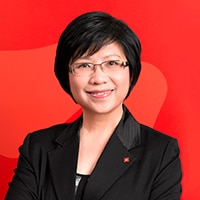
Chng Sok Hui, CFO
Global Finance: What makes DBS a safe bank?
Chng: I would highlight five key factors that make DBS a safe bank: strong franchise, sound strategy and strong execution; capital strength; sound risk management; funding and liquidity; and pedigree parentage. We are an Asia-centric commercial bank, distinct from local lenders and global players. We are anchored in Singapore and Hong Kong, two well-regulated markets, with a growing presence in Greater China, India and Southeast Asia. The diversification of our customer base, geographical spread and product mix in one of the highest-growing regions in the world adds to the resilience and safety of our franchise.
Our Common Equity Tier-1 (CET1) ratio of 12.2%, based on final rules, is in excess of Singapore’s stringent capital requirements, which are above global standards. Our leverage ratio, which is an alternative indicator of capital strength, is, at 7.1%, significantly above the minimum 3% required under the new Basel III rules. Our internal models are conservative, compared to global peers, as measured by the ratio of risk-weighted assets to total assets. Our subsidiaries are also well capitalized.
Our asset quality is extremely healthy, with nonperforming loans at 0.9% of total loans. We are prudent in assessing specific provisions and routinely set aside general allowances to provide us with a healthy buffer against cyclical headwinds. Our board ensures that we have a strong risk management framework that encompasses credit, liquidity, market and operational risk. We continue to be vigilant in enhancing our network and system resiliency and strengthening our defense against cybercrime. Our remuneration policy is structured to align compensation to appropriate risk-taking behavior.
We have stable and diversified sources of liquidity. We have more than 50% market share in savings deposits in Singapore, which provides us with ample Sing-dollar funding. In addition we have widened our sources of US dollar funding. Based on Basel III liquidity requirements, our liquidity coverage ratio and net-stable-funding ratio have remained comfortably above 100%.
Our customers, depositors and investors also find comfort in our pedigree parentage. Our largest shareholder is the Singapore government, which has a 30% stake and is one of the few AAArated sovereigns in the world. Our own credit ratings of AA- from S&P and Fitch, and Aa1 from Moody’s, are also among the highest in the world.
GF: What are your concerns? What keeps you awake at night?
Chng: Digital revolution. Rapidly changing technology and customer behaviors are causing a digital disruption to the banking industry. New business models will emerge, and banks will have to find new ways to compete with nonbanks such as Alibaba, PayPal and Square or risk being increasingly marginalized over the long term. At the same time, we need to be mindful of cybersecurity and privacy issues which are becoming ever more acute.
Jump To Interview:
-
Chng Sok Hui, CFO | DBS: Spreading Across Asia
-
Ulrich Schröder, CEO | KfW: Achieving A Sustainable Impact
-
Robert Engel, Chief Executive | CoBank: 14 Years of Consecutive Earnings Growth
-
Frenk van der Vliet, Member of The Managing Board | NWB Bank: Changing Supervision
-
Axel Nawrath, Chairman of the Board | L-Bank: Conservative Investment With A Long-Term View
-
Brian O’Keane, CFO | AgriBank: Paying Attention To US Policy
KfW: Achieving A Sustainable Impact
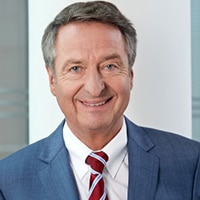
Ulrich Schröder, CEO
Global Finance: What makes KfW the World’s Safest Bank?
Schröder: Our award as ‘World’s Safest Bank’ is mainly due to the first-class credit standing which KfW enjoys as a result of the explicit guarantee of the Federal Republic of Germany.
GF: How is KfW helping to support economic growth and stability?
Schröder: As one of the world‘s leading promotional banks, we shall apply our decades of experience on behalf of the federal government and the federal states to improve the economic, social and ecological living conditions in Germany and around the world.
GF: How and why is sustainability and social responsibility part of the mandate of KfW?
Schröder: We want our loans to achieve as great a sustainable impact as possible when they are invested in environmental and climate protection, in education and in the creation of jobs. KfW is aware of its responsibility. Its task is to ensure sustainability and promote public welfare—within Germany and beyond.
Jump To Interview:
-
Chng Sok Hui, CFO | DBS: Spreading Across Asia
-
Ulrich Schröder, CEO | KfW: Achieving A Sustainable Impact
-
Robert Engel, Chief Executive | CoBank: 14 Years of Consecutive Earnings Growth
-
Frenk van der Vliet, Member of The Managing Board | NWB Bank: Changing Supervision
-
Axel Nawrath, Chairman of the Board | L-Bank: Conservative Investment With A Long-Term View
-
Brian O’Keane, CFO | AgriBank: Paying Attention To US Policy
CoBank: 14 Years of Consecutive Earnings Growth
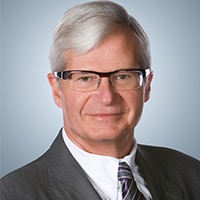
Robert Engel, Chief Executive
Global Finance: What makes CoBank a safe bank?
Engel: Being part of a government-sponsored enterprise and part of the Farm Credit System gives us a leap on the ratings. We also have an incredible credit portfolio, and since 2000, we have announced 14 consecutive years of earning growth. Irrespective of market environments, financial crisis or no financial crisis, good or bad economic conditions, low or high interest rates, good or bad private cultures, we have a long track record of delivering those strong results. Even more important, we are delivering strong dividends.
GF: How have you achieved that?
Engel: We are a mission-based organization that is very focused on the industry we know. We serve rural America, and we do so as a cooperative, looking at the long term. We look at performance and value—not only for today and tomorrow, but for the next generation. Compared to the environment I came from at HSBC, where quarterly earnings and share prices were much more important, here at CoBank we give more value to the long-term horizon. Our ability to do that, to know our business, the industry, and to demonstrate real value to them is key to our success—we know more and care more about our customers, than anybody else.
GF: What are CoBank’s capital and liquidity levels?
Engel: At 17%, the bank’s permanent capital ratio is well above the required regulatory minimum of 7%, although the latter will be increased to match Basel III’s levels. We tend to distribute around 15% of our earnings as dividends, so we remain with a solid level of capital. Liquidity is even more important, because that is what could put a financial organization in trouble. Our regulatory minimum is 90 days of liquidity without placing any debt, and at the end of the second quarter it was 162 days. Having these long-term horizons puts us in a position to manage the organization in a more conservative way. If you look at our results, you can tell that looking at customers’ needs and long-term business is a strong recipe for success.
Jump To Interview:
-
Chng Sok Hui, CFO | DBS: Spreading Across Asia
-
Ulrich Schröder, CEO | KfW: Achieving A Sustainable Impact
-
Robert Engel, Chief Executive | CoBank: 14 Years of Consecutive Earnings Growth
-
Frenk van der Vliet, Member of The Managing Board | NWB Bank: Changing Supervision
-
Axel Nawrath, Chairman of the Board | L-Bank: Conservative Investment With A Long-Term View
-
Brian O’Keane, CFO | AgriBank: Paying Attention To US Policy
NWB Bank (Nederlandse Waterschapsbank): Changing Supervision
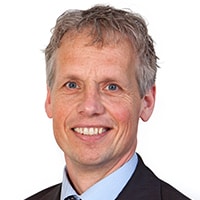
Frenk van der Vliet, Member of The Managing board
Global Finance: What makes your bank one of the safest banks in the world?
Van der Vliet: We are publicly owned, and we operate only for the Dutch public sector. So we are very much a niche player, but at the same time we are only active in the lowest-possible credit risk in the Netherlands. We do not have an explicit guarantee from the government, but we only invest in government entities and government-guaranteed entities. Our assets are extremely safe: They are all rated triple-A. Besides that, we have a very strong liquidity and solvency position. We have a Tier 1 capital ratio which is probably the highest in the world at 69% (it has to be 6% or more), and all our assets are ECB-eligible loans—that is also quite unique.
GF: If you do not maximize your profits, how do you measure your success?
Van der Vliet: Our goal is to finance the Dutch public sector as cheaply as possible. In combination with BNG we have around 90% market share. That underlines the success of this model and proves that we can indeed provide the cheapest funding possible.
GF: What is the bank’s outlook for the coming months?
Van der Vliet: As one of the 120 significant banks in the eurozone, we will be under the supervision of the ECB as of November. This happens after a comprehensive assessment which included reviews of banks’ balance sheets, especially the asset quality, as well as stress tests. This has been quite a labor-intensive project so far this year, because it meant participating in stress testing and all the reporting, asset quality and the like. But it is also very positive for our investor base, because in the end, being under the supervision of the ECB is another sign of strength. With this change in supervision there will be a more international context and level playing field. That will be good for everybody.
GF: What risks are you facing in the short-medium term? What keeps you up at night?
Van der Vliet: The main thing is regulation, which is often one-size-fits-all—and that approach does not necessarily apply to an organization like NWB Bank. We will obviously comply with all regulations, even though these are in some cases not specially designed for such a specific institution as ours.
Jump To Interview:
-
Chng Sok Hui, CFO | DBS: Spreading Across Asia
-
Ulrich Schröder, CEO | KfW: Achieving A Sustainable Impact
-
Robert Engel, Chief Executive | CoBank: 14 Years of Consecutive Earnings Growth
-
Frenk van der Vliet, Member of The Managing Board | NWB Bank: Changing Supervision
-
Axel Nawrath, Chairman of the Board | L-Bank: Conservative Investment With A Long-Term View
-
Brian O’Keane, CFO | AgriBank: Paying Attention To US Policy
L-Bank: Conservative Investment With A Long-Term View
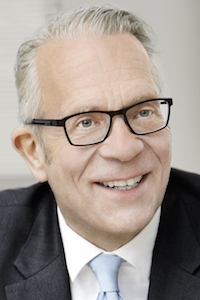
Axel Nawrath, Chairman of the Board
Global Finance: What makes your bank one of the safest in the world?
Nawrath: L-Bank pursues a conservative investment strategy based on taking the long-term view. For years this has enabled the bank to rank in the top league of the world’s safest banks. We’re obliged to follow such a strategy on account of the responsibilities imposed on us by our development-bank remit: Our statutory mandate is to support the State of Baden-Württemberg in the performance of its public duties. And this means that on behalf of our owner (the State of Baden-Württemberg), we’re involved in administering economic, structural and social policies. At the same time, as the State of Baden-Württemberg’s development bank, we undoubtedly also benefit from our owner’s good credit standing—that is, from the fact that the federal state has been given top ratings by the major international rating agencies.
GF: How does your strategy compare with that of your peers?
Nawrath: In key areas—business strategy, overall strategy and the way our owner’s strength works to our advantage—we’re set up in very similar ways to the other major German development banks. And for many years, they’ve also occupied top-ranking positions among the world’s safest banks.
Jump To Interview:
-
Chng Sok Hui, CFO | DBS: Spreading Across Asia
-
Ulrich Schröder, CEO | KfW: Achieving A Sustainable Impact
-
Robert Engel, Chief Executive | CoBank: 14 Years of Consecutive Earnings Growth
-
Frenk van der Vliet, Member of The Managing Board | NWB Bank: Changing Supervision
-
Axel Nawrath, Chairman of the Board | L-Bank: Conservative Investment With A Long-Term View
-
Brian O’Keane, CFO | AgriBank: Paying Attention To US Policy
AgriBank: Paying Attention To US Policy
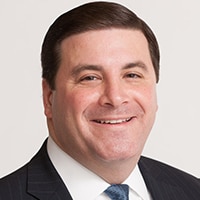
Brian O’Keane, Chief Financial Officer
Global Finance: How would your view of your bank’s safety change if AgriBank were not guaranteed by the state?
O’Keane: AgriBank is a member of the Farm Credit System (FCS), which was created nearly a century ago (1916) by Congress with the express goal of being a reliable provider of funding for rural America. Clearly the backing of the government helps with the ratings system. But agriculture in North America or Europe is a very volatile and cyclical business. At AgriBank we consider it our responsibility, beyond the government’s backing, to maintain a very strong financial profile in terms of our earnings generation capacity, capital base and commitment to being prudent stewards of credit underwriting.
One benefit of AgriBank is that we are primarily a wholesale lender. Our total assets are about $90 billion, around $73 billion of which are in loans. About 90% of our loans are to affiliated associations which have a direct retail exposure to the farmers. Another benefit is that by being a wholesale lender under the regulatory capital regime, many of the assets that we have on our balance sheet have a lower risk weighting than you would see in a commercial banking role. So when you look at AgriBank’s capital ratios on a risk-adjusted basis, our permanent capital ratio as of June 2014 was in excess of 21% to risk-adjusted assets. From a capitalization perspective, if you put AgriBank up against Citibank or Wells Fargo on a risk-adjusted basis, we compare very favorably. Likewise, from a liquidity perspective, AgriBank and the other banks within the FCS do have a regulatory minimum liquidity requirement of 90 days of maturing obligations.
GF: What keeps you up at night?
O’Keane: Probably policy in general. The last farm bill took a little longer to be put in place than anticipated. The debate about government’s supporting farming will continue to come under pressure as the financial picture of the United States continues to evolve. The concern is what impact that policy will have and how it will affect those we lend money to. What gives me some comfort and helps me sleep at night is that a good majority of the customers to whom we lend funds recognize that agriculture is a cyclical business. As such, they operate in a conservative way and are therefore able to withstand those changes in policy.
Jump To Interview:
-
Chng Sok Hui, CFO | DBS: Spreading Across Asia
-
Ulrich Schröder, CEO | KfW: Achieving A Sustainable Impact
-
Robert Engel, Chief Executive | CoBank: 14 Years of Consecutive Earnings Growth
-
Frenk van der Vliet, Member of The Managing Board | NWB Bank: Changing Supervision
-
Axel Nawrath, Chairman of the Board | L-Bank: Conservative Investment With A Long-Term View
-
Brian O’Keane, CFO | AgriBank: Paying Attention To US Policy



